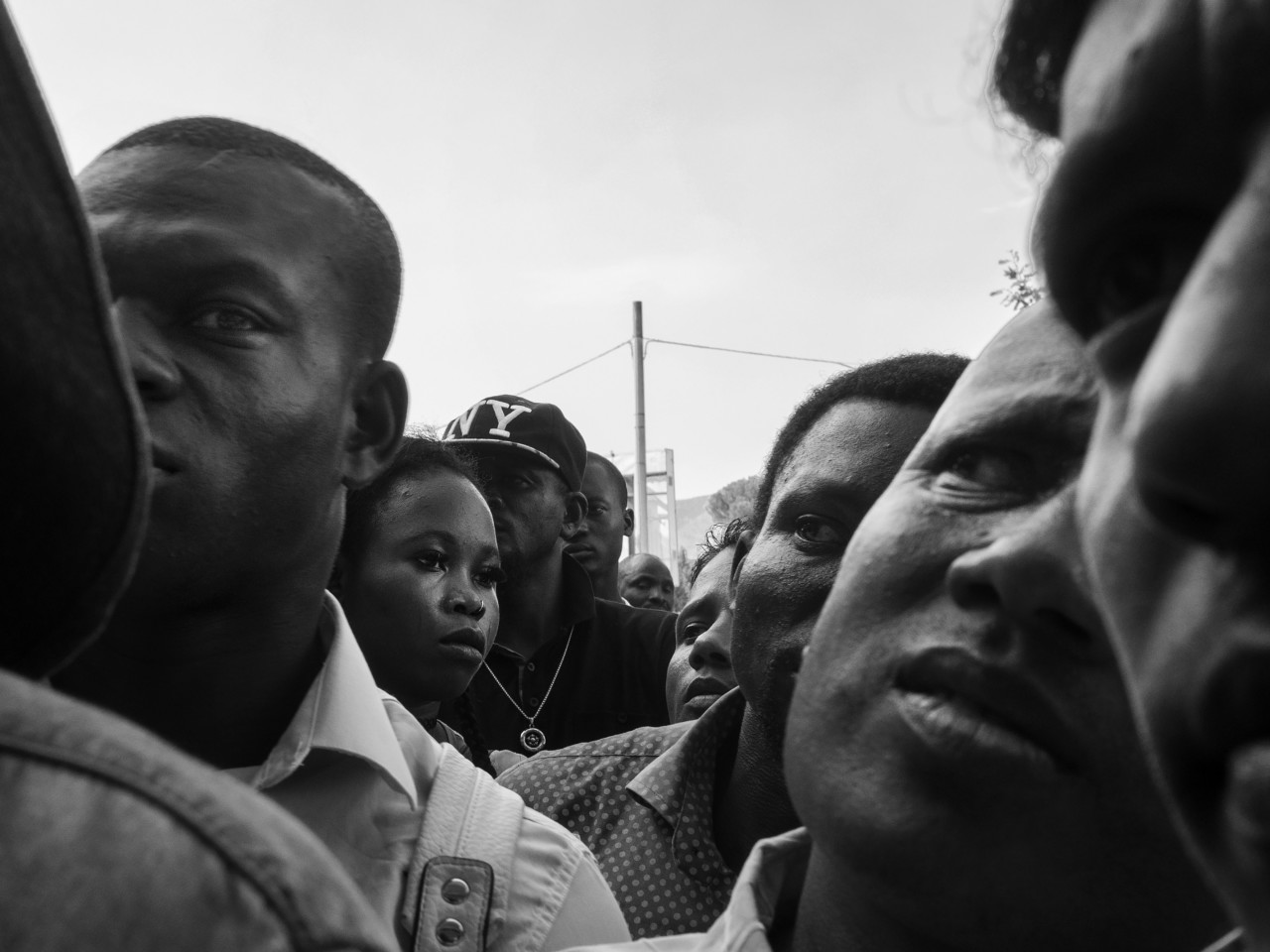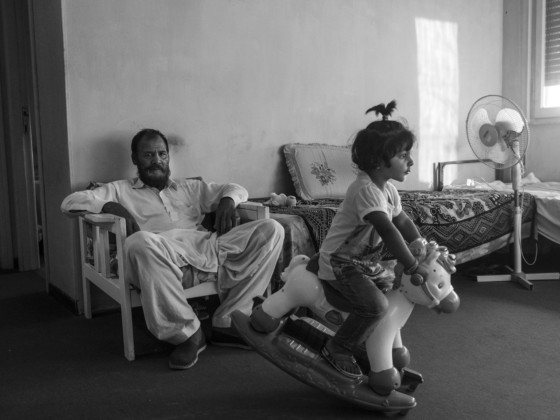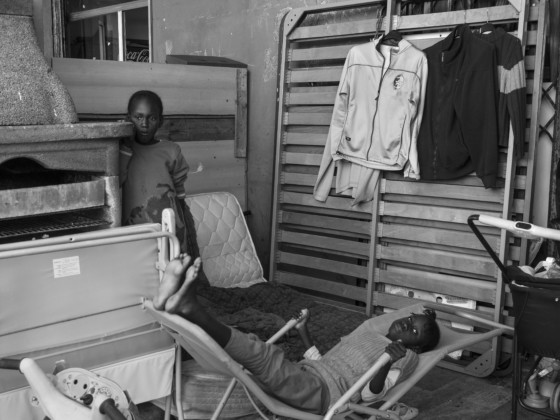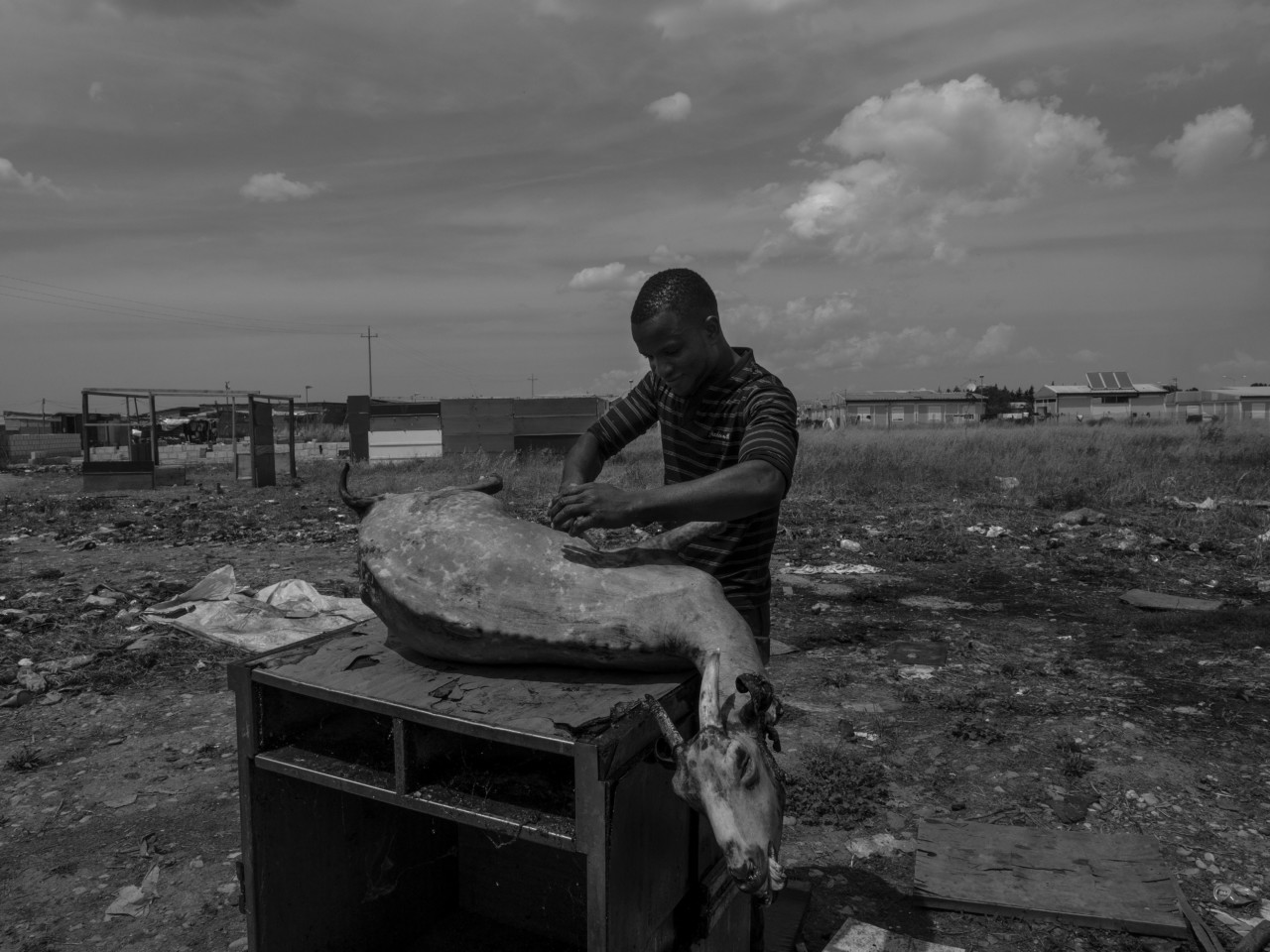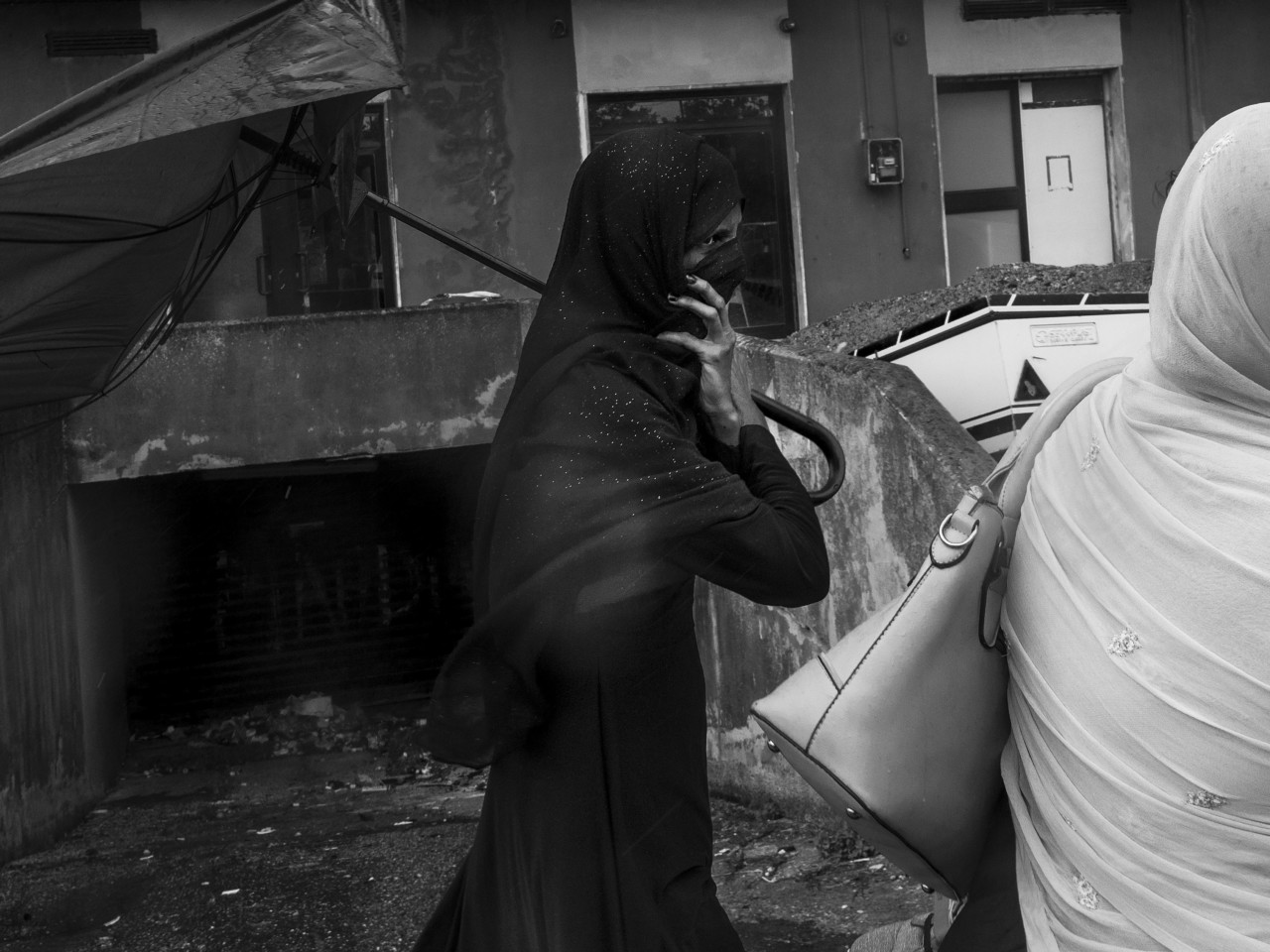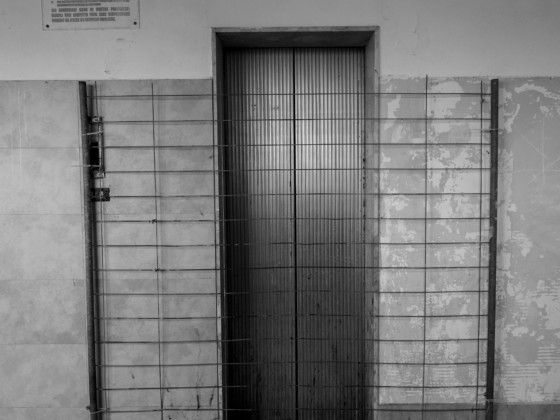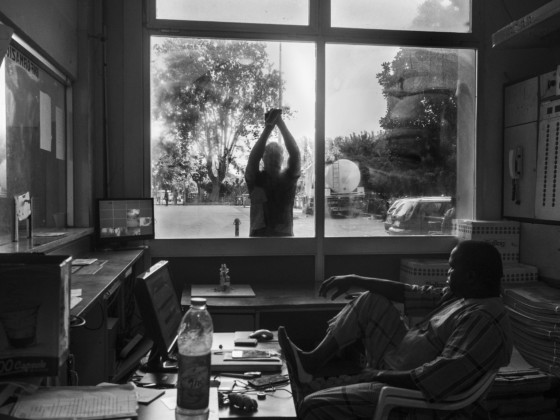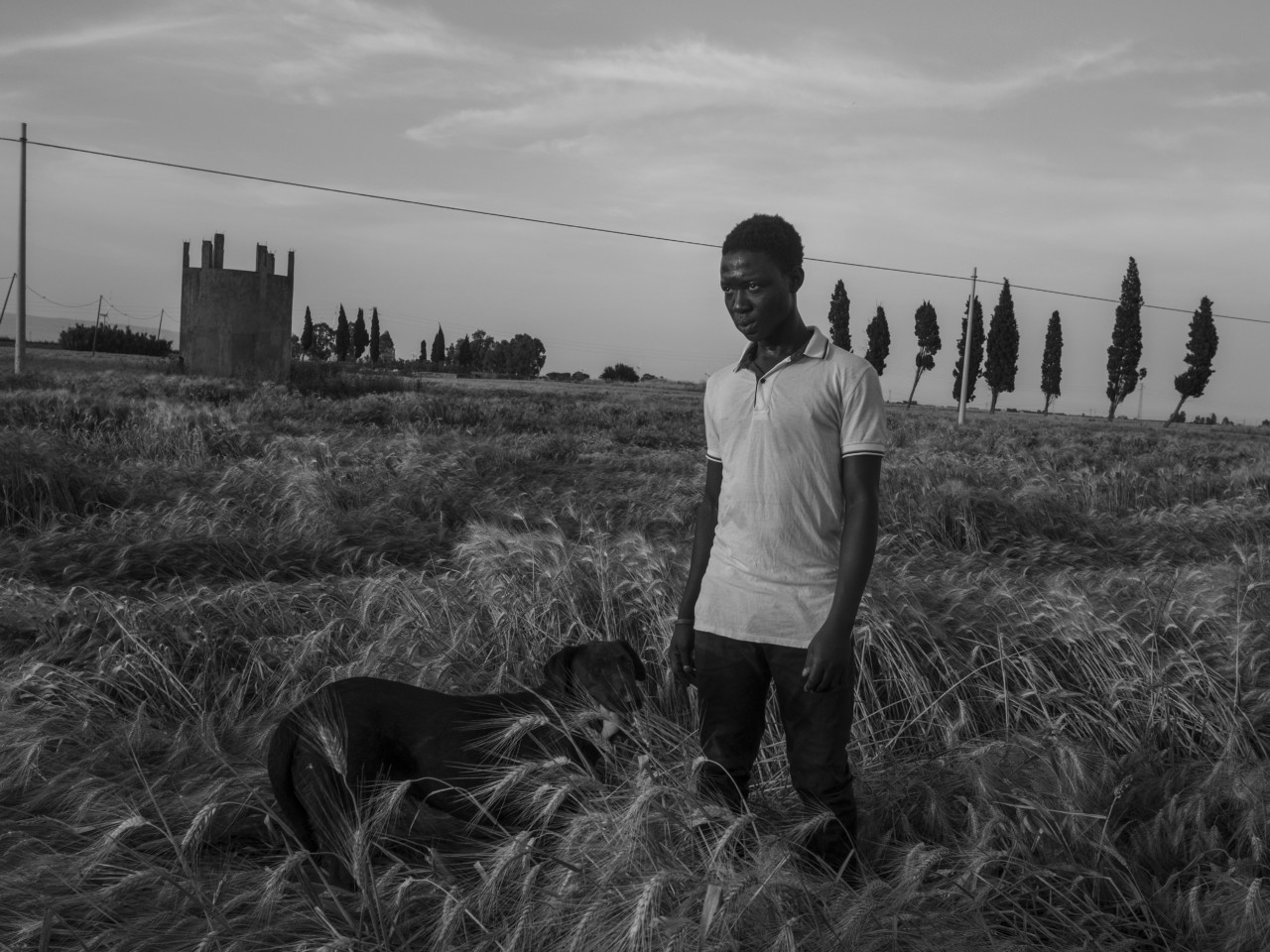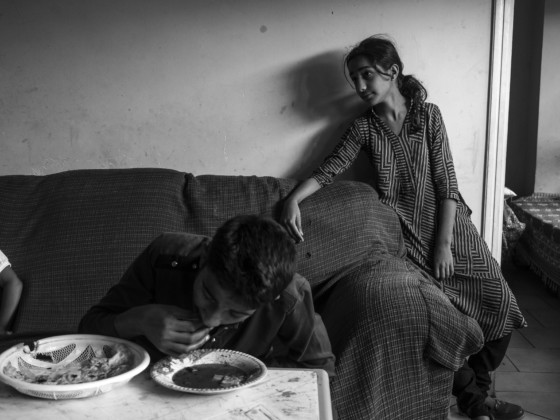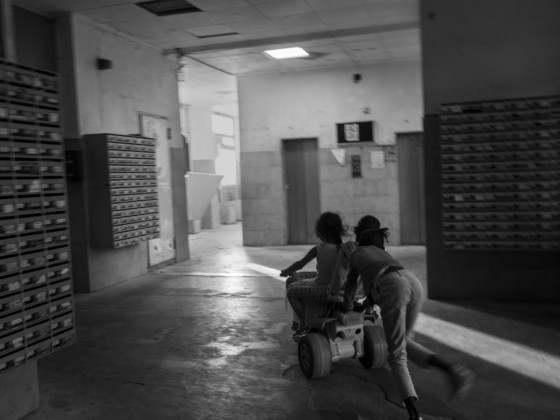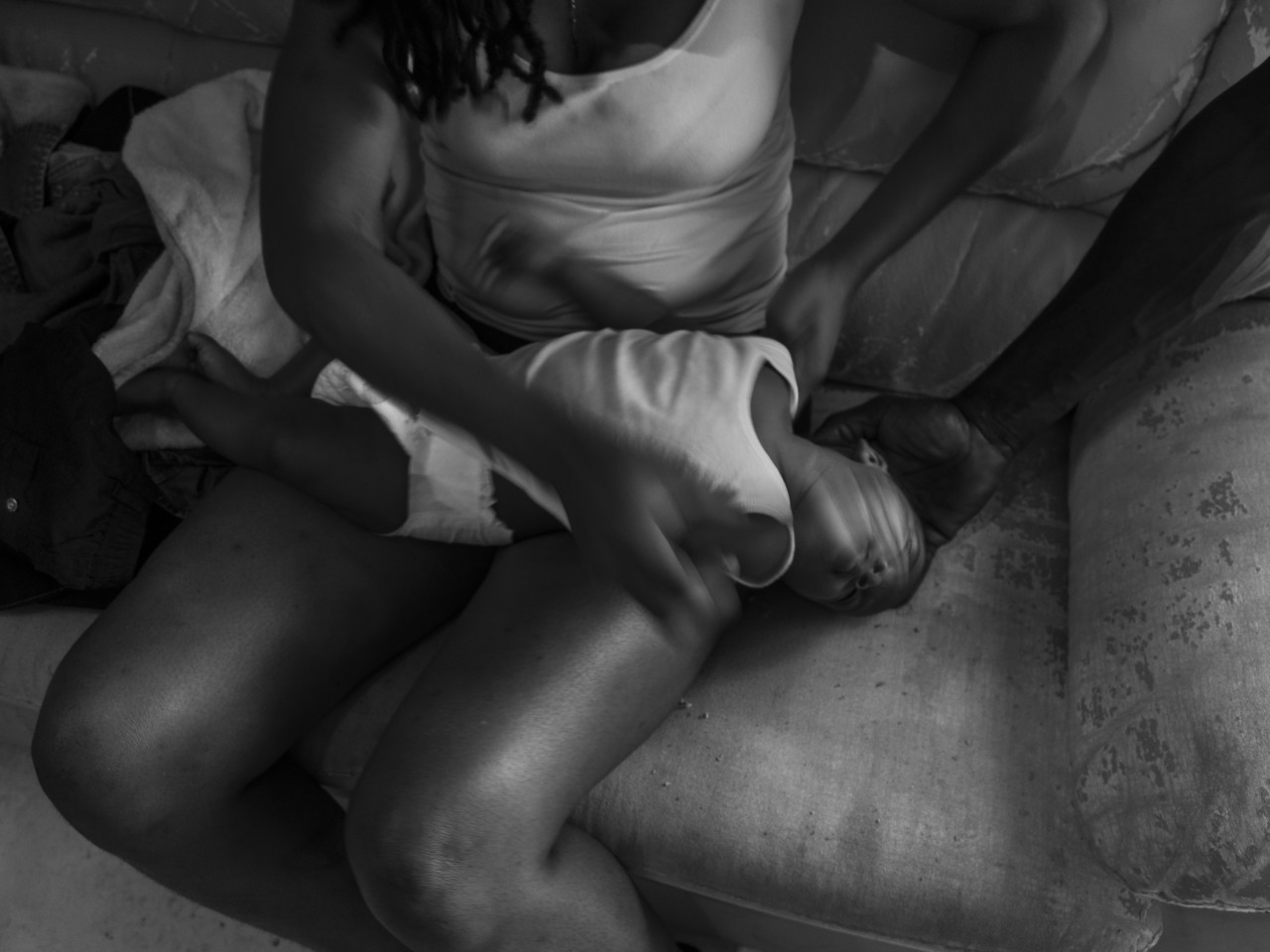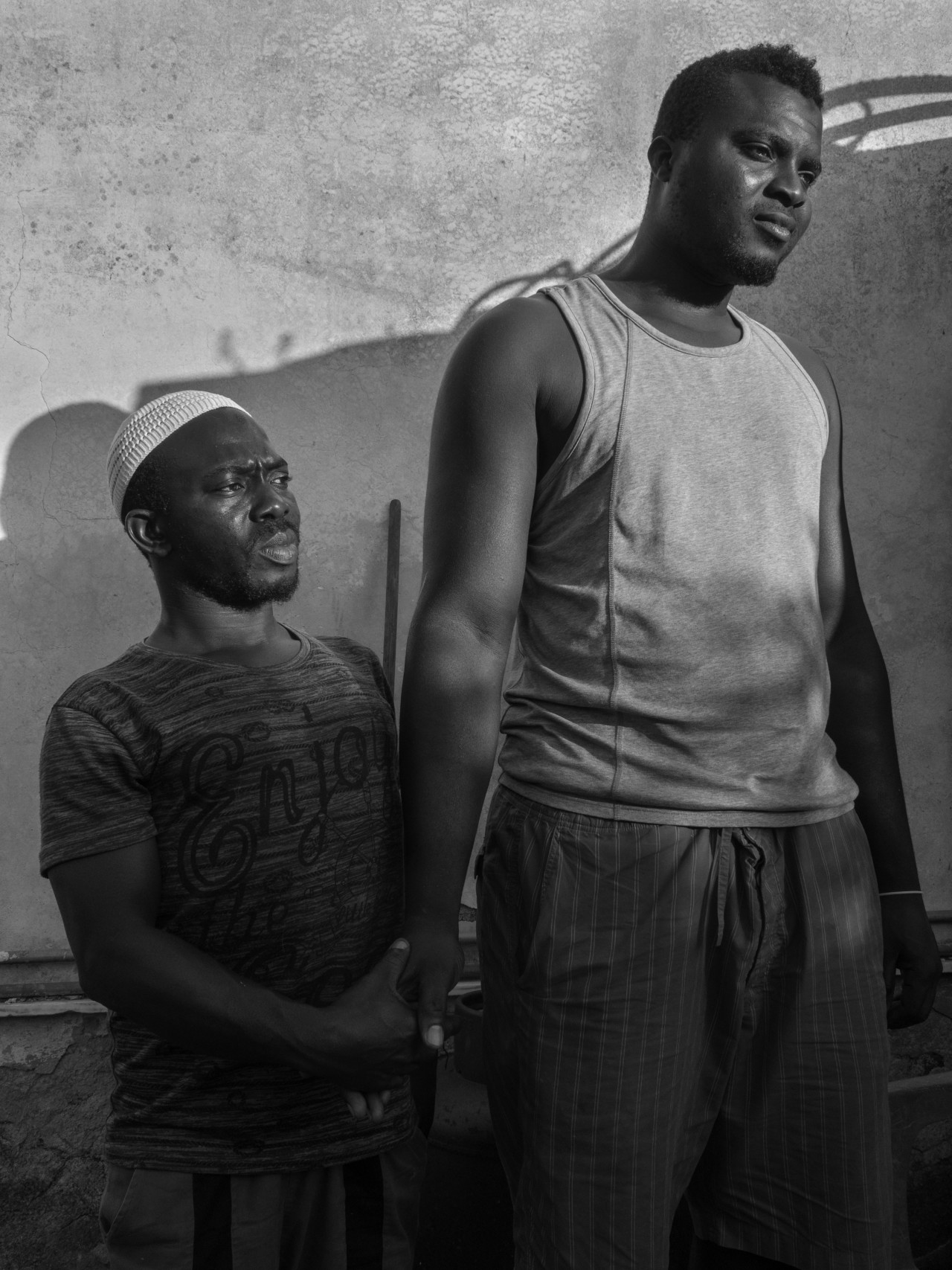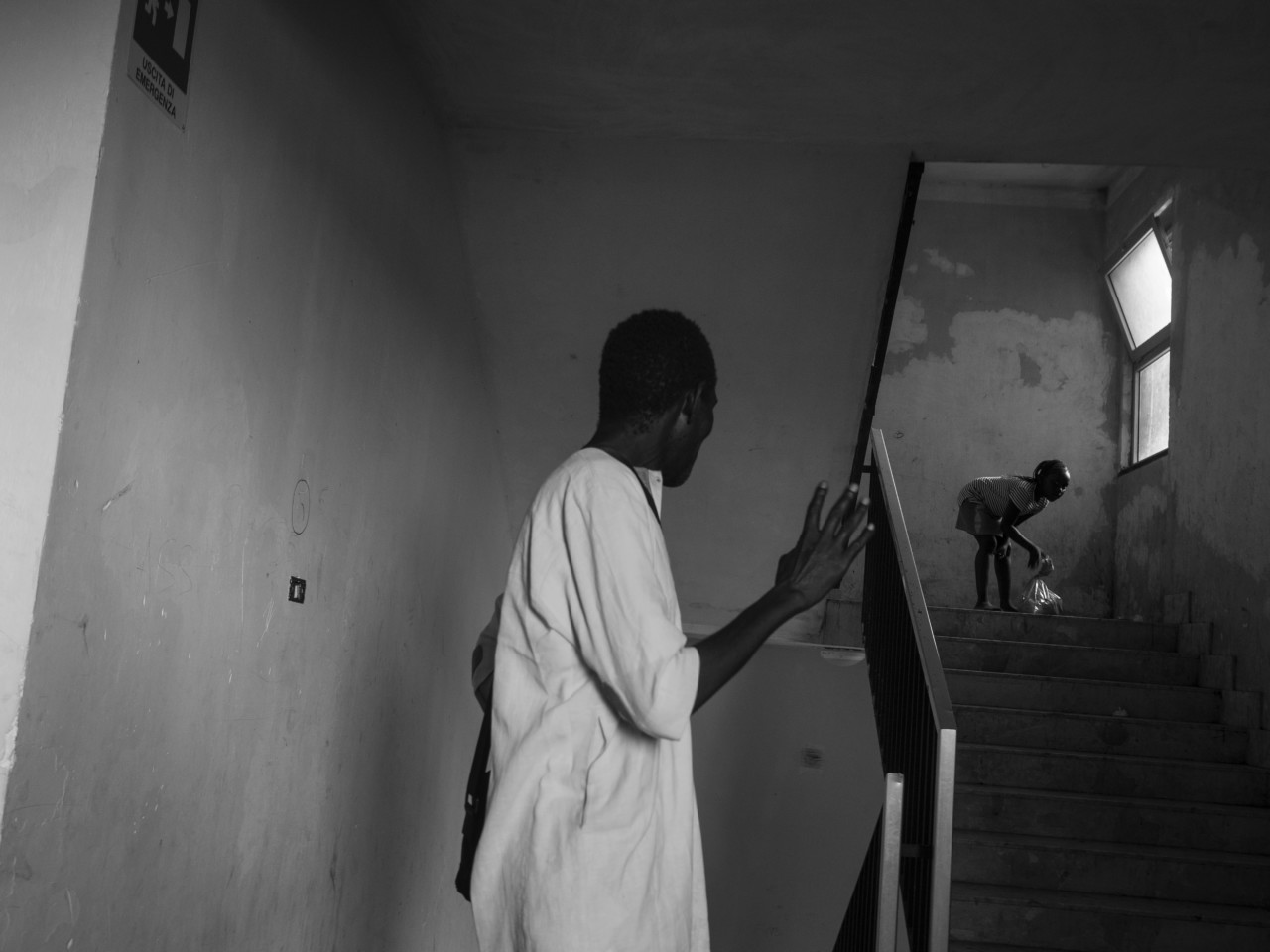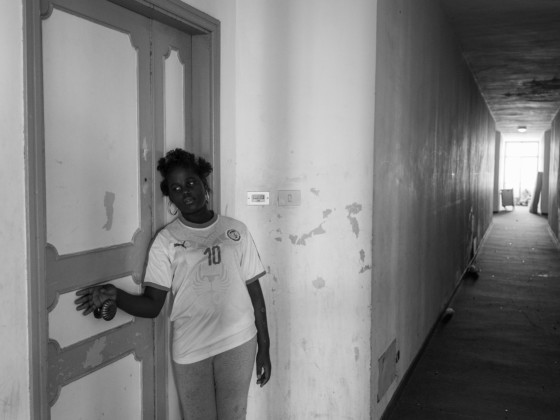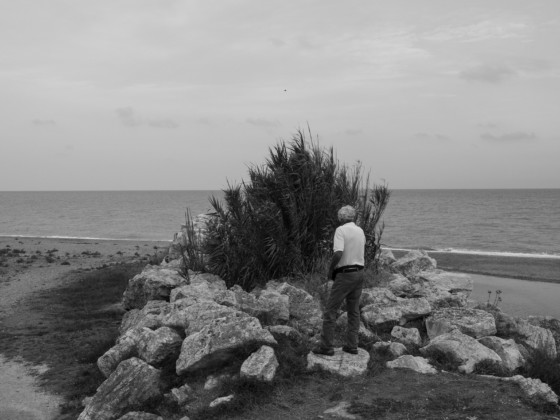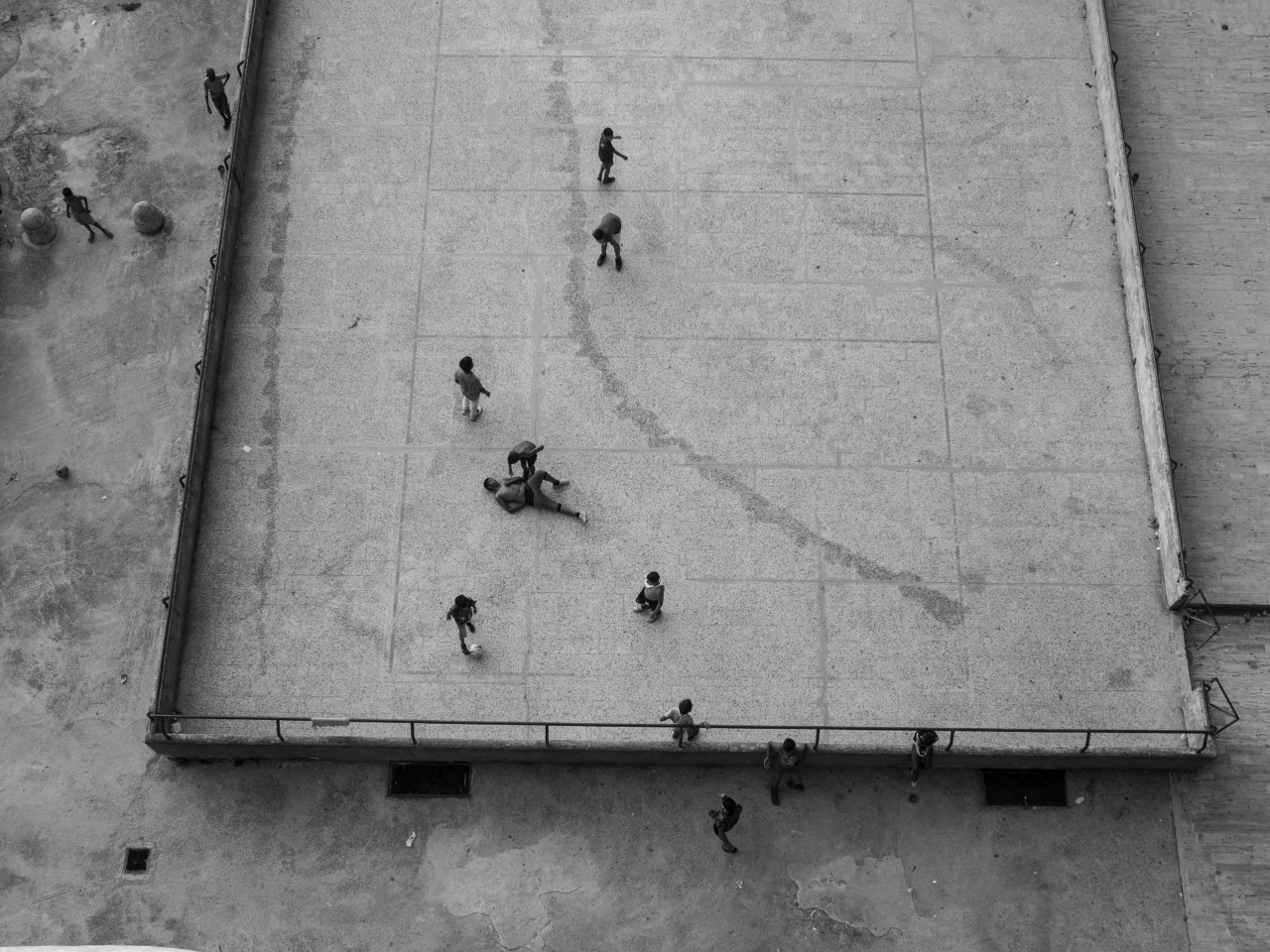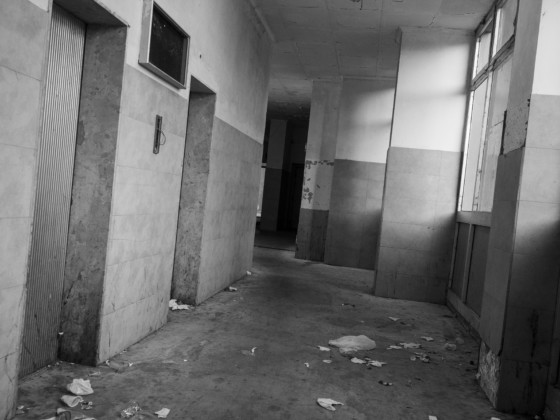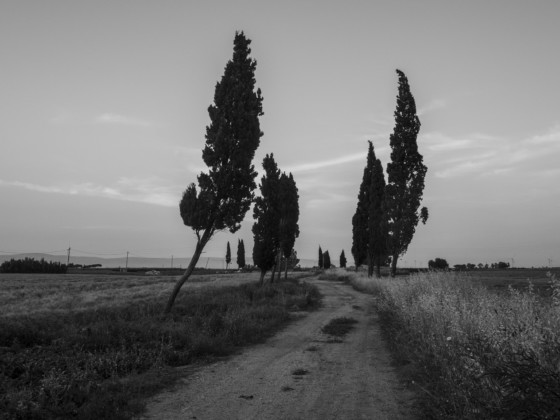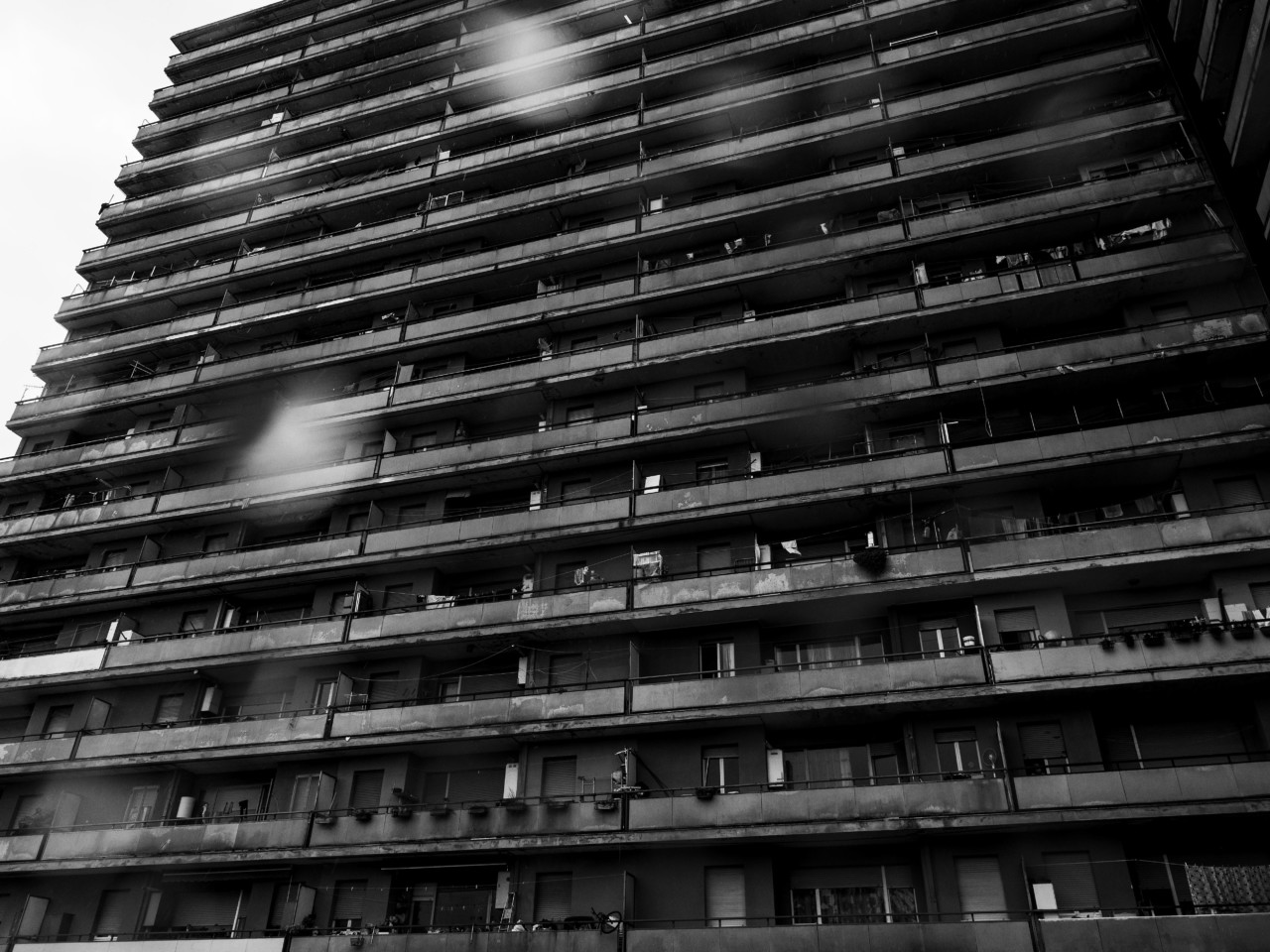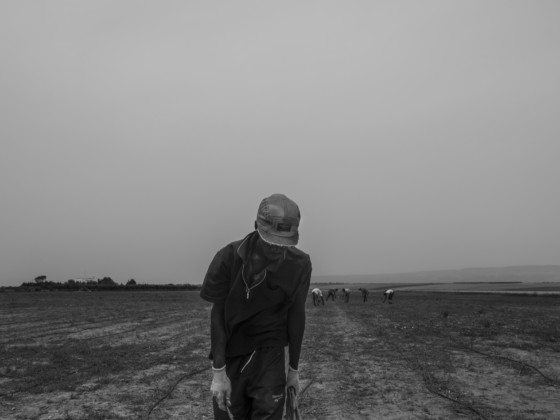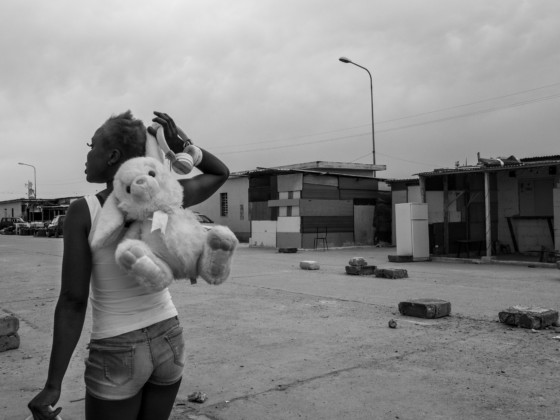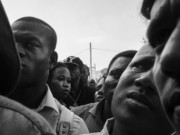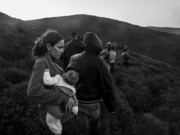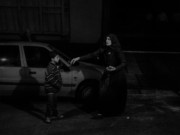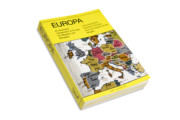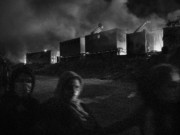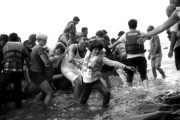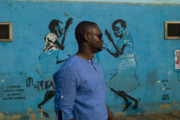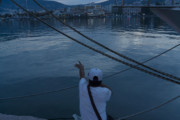“There’s Rise or Ruin”: Enri Canaj’s Ongoing Documentation of Italy’s Crisis of Policy on Migration
The Magnum photographer's work in Italy documenting the purgatorial existence of immigrants, both newly arrived and long since settled, is typical of his practice in its insistence on focusing on the pathos and humanity of those in limbo
Magnum photographer Enri Canaj was born in Albania before he and his family moved to Greece, shortly after the opening of the border. His youth in Athens, living in a society comprised of both immigrants and Greeks, exposed to economic struggles, crime, and poverty has informed his work documenting Europe’s refugee crisis. Having previously focused primarily upon the Greek and Balkan routes into Europe he has, more recently, re-focused his attention upon Italy – a country experiencing acutely the challenges presented by this ongoing crisis.
As part of his wider work there, Canaj recently visited Hotel House in Porto Recanati, a decrepit tower block that has – for many on both the right and left of the nation’s political spectrum – come to symbolize the myriad failures and issues around migration in Italy. Formerly a private apartment complex boasting hotel-like luxury and views of the Adriatic, today the building is home to an unknown number of migrants thought to be in the thousands, alongside a handful of Italians. Here, Canaj discusses the realities of Hotel House, alongside his wider work in Italy, and the importance of focusing upon the glimmers of hope and pathos in his subjects.
"People are living in survival mode, in alert mode, in a country that has been deeply affected by the social and economic crises of these recent years"
- Enri Canaj
Much of your work dwells upon societies, and people, in states of flux. What is it that interests you about that state – the changing of demographics, or structures in a place?
Places are always changing, and the size or shape of that changes doesn’t matter to me. What really makes me work on these issues is not exactly the change, but the path this metamorphosis itself takes in people. I’m more interested in what the flux turns into: I have discovered this from my own personal experience, as a migrant. When you first move to a new place, starting everything from the beginning, the first years there are the most important.
Every aspect of those early years – the circumstances people go through – are crucial. It’s this moment in people’s lives that will seal, that will determine, the next stage in their life. There are not too many options for people in this precarious position, there’s rise or ruin.
Of course, there will be demographic and structural changes in the host country, but to be honest this is not in my focus. I’m more interested in peoples’ lives, how they manage, that energy that makes them go through such an insane reality. And in all of this you can spot those soft moments, sometimes sweet moments. You can feel the warmth and the hope even when life hands people intensely bitter things.
"In Italy there’s hardly any framework for immigrants, hardly any path that people can follow to settle and start building their life anew"
- Enri Canaj
Why is it that Italy seems to be of specific interest to you at present? Why did your focus shift here from your earlier work on say, Balkan migration issues and routes?
This last year I have been traveling around different European countries which have hosted large numbers of refugees. Most come from the Middle East and Africa and have reached Europe over recent years. The first part of my work was focused in the Balkans as the main entry point to Europe, and as the primary route migrants used to reach the west and northern parts of the continent. This part of the journey is now over.
The trips I have made recently have been in Italy, which has a high number of newcomers, mostly from Africa. Compared to other EU countries, in Italy there is hardly any framework for immigrants, hardly any path that people can follow in order to settle and start building their lives anew. I met people that have been living in many Italian cities for more than ten years, with no papers, no legal work, people living in misery. They do not have access to services, they are deprived of basic human rights.
You can see the second generation too, many kids born in Italy who are living in the same conditions as their parents were when they first arrived there years ago. Into this picture let’s now add the newcomers with their hopes and dreams. People are living in survival mode, in alert mode, in a country that has been deeply affected by the social and economic crises of these recent years.
"Many kids born in Italy are in the same conditions as their parents were when they first moved there years ago"
- Enri Canaj
There is much made of a wide-spread move toward the right in Italy, often tied to immigration issues, but do you feel the political context is more complex than that?
It’s not only in Italy that the move toward the right is spreading. All across Europe, nationalist and far right parties have made significant electoral gains. Unfortunately, many young people are involved, becoming extreme fans of these changes. In my opinion, it is the economic and political situations that are the biggest factors propelling this swing toward the right in the EU. Refugees and migrants are only the most vulnerable part of that larger puzzle.
This is the same story that repeats itself. There is the familiar need to blame, the need to find the guilty party, and of course in this situation the newcomers are the easiest target to attack . In the worst cases people have lost their lives. There have been many racist attacks which have taken people’s lives, and not only in Italy. Hate and aggression is growing, making fear spread.
How does what you have seen in Italy feed into your feelings about a wider crisis of policy?
The scenario in Italy, for sure it’s not good. It feels like the country is struggling in the midst of a crisis that affects, in a negative way, all aspects of life for it’s citizens. As far as the migrants themselves go, let’s just say that it is one of the worst scenarios I’ve seen in Europe. The present government is trying to apply harsh policies that are affecting for the worse the lives of migrants.
For some people, this is happening after so many years of living in the country. For others who have sacrificed everything they have for a better future – they never felt welcome, accepted or loved by the country in which they are trying to build their homes. Ultimately, I doubt that they will ever now love the country which has become their home.
Certainly there is a lack of policy in the country. But at the same time the numbers show that Italy is indeed dealing with a very high number of refugees and migrants, without a working structure or process, without being prepared to deal with this, and importantly without much support from the rest of Europe.
"I met people that have been living in many Italian cities for more than ten years, with no papers, no legal work, living in misery. They do not have access to services, they are deprived of basic human rights"
- Enri Canaj
In the Italian media Hotel House has become something of an icon. It is seen by many people with many agendas as a case study. To the right it seems to represent all the ‘dangers’ of immigration, and to the left it seems to represent the lack of care or support for immigrants and Italians alike. What was your feeling about this while working there?
Before going to Ancona I had read some articles about Hotel House. For sure, there are different points of view and there is much speculation about it. What I can say, as a photographer, is that from the outside things look harsh. It’s a difficult place to infiltrate. When you experience things from closer by, it is the same harsh atmosphere, but at the same time there is a tenderness to the way people share their daily lives with each other.
The residents come from so many different countries, different cultures and religions, different mentalities and backgrounds, and at the end of the day they do try to be good neighbors. Even by just greeting one another while taking the stairs because the elevators don’t work. They swim in the same waters.
It’s a huge building that shelters more than 2000 people from 32 different countries and there are parts of the day when you can hear only silence. At other times you can see the building overcrowded, and can hear the shouting so loud. There’s the feeling that people are trapped, and there are no chances for them to leave.
"People who don’t have many opportunities or advantages have this internal strength that fascinates me so much. It is like it talks to me and I can hear it"
- Enri Canaj
The situation in Hotel House reminds me somewhat of your work in Athens – an urban, impoverished environment – externally famous for crime… Of course, Athens was the place of your youth, and Italy is not. How did working in this setting differ?
For me there’s not a big difference if you compare these two bodies of work. Actually, the only change really is geographical, and the fact that Hotel House is home to almost only migrants – there are not more than a dozen locals. In that sense you could see that people there are more isolated. On the other hand, in Athens, the migrants and the host society share the same neighborhoods, there are closer and interact more. It was like this during my childhood as well.
Those specifics aside, the rest is much the same, and this is exactly what touches my interest: people who don’t have many opportunities or advantages often have this internal strength that fascinates me so much. It is like it talks to me and I can hear it. This energy brings me somewhere I know very well. The simplicity of how people deal even with the worst… It’s the pathos they have that affects me and my work. All this is like an underground secret path, difficult to be conscious of in such a difficult reality.
You have spoken about that hope being something you try to focus upon in your work, even in situations that seem desperate. Was it harder to see that hope here, or did you still see some of that potential for positivity to come, for growing tolerance?
There’s always hope and great potential for positive things to happen. If I don’t feel that, I lose myself as a photographer. I believe that in this type of work, sometimes you have to show the worst of life with honesty, those dark aspects that are not easy to digest. But there’s always something that has to touch me, that draws something out of myself – of my own point of view. My hope is that others – the public – will start thinking, maybe from a new perspective, being more empathic, or just asking questions and learning more.
How do you see your work in the country, on this project, developing? Do you have an end in sight, or a target to reach?
I believe this period for Italy is critical. All these political, social and economic situations are chaffing between each other. My work there still goes on. There are other places I’m planning to go to, to see things from close-up, and to continue exploring the things I learned about so well in my youth.


